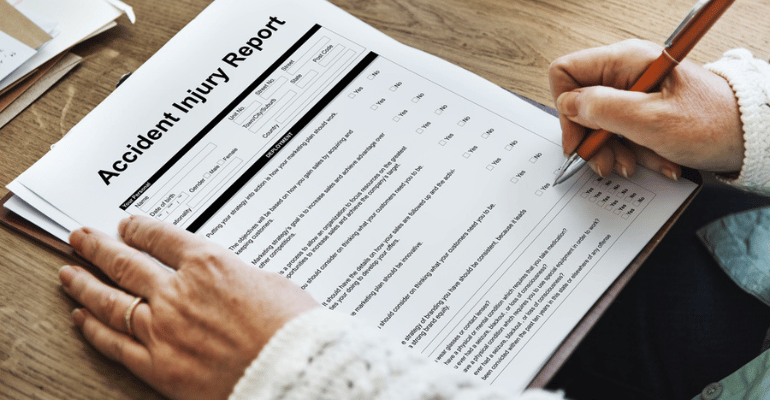
Employment Rights During a Hurricane in Florida
Hurricane Ian led to thousands of families losing their homes. During the chaos, Florida workers faced significant employment dilemmas that directly threatened their safety and employment. Natural disasters can put employers and their workers at odds with various fashions.
Fortunately for workers, an array of legal protections exists to protect workers’ safety and rights during a natural disaster. However, specific categories of workers have more protection than others. Also, not all employers obey labor mandates, but workers may seek relief in a few different ways when their rights are violated in the workplace.
Employment Laws for Natural Disasters
Long ago, the federal government recognized businesses’ power over their employees and the great responsibility they bear to these workers.
Through the passage of various acts and legislation, Congress has made it clear that employers must care for their employees’ well-being while at work, especially when a natural disaster hits. Laws mandating safety requirements and other essential labor protections are in force in all 50 states.
During Hurricane Ian, these laws came into full effect. Sadly, not all businesses were prepared to or wanted to comply with the safety and labor rules. As such, many workers throughout the state have likely experienced wrongful actions at the hands of their employers and may have suffered various losses.
Although federal and state laws protect all employees, protections and expectations vary from worker to worker because of the various types of employment.
For example, the safety considerations employers must have at a construction site are far different than those at a grocery store. These considerations govern employers’ decision-making processes during a hurricane or other natural disaster. They also play a role in defining the scope of the protections a worker might be entitled to.
Occupational Safety and Health Act (OSH Act)
The OSH Act provides essential protections for workers by requiring employers to maintain specific workplace safety standards.
Many of the Act’s regulations deal with day-to-day business operations. Still, it also contains specific provisions protecting safety-themed employment rights during hurricanes, such as the requirement for having an emergency action plan.
An emergency action plan is a set of instructions employees are to follow in the event of a workplace emergency. Essential elements of an emergency action plan include:
- A list of conditions that trigger the emergency action plan
- A transparent chain of authority during the emergency
- A list of tasks to complete and who is to perform the tasks
- An evacuation plan that includes a way to keep track of personnel
With an effective emergency action plan, workers have a higher chance of escaping emergencies unharmed. Without one, risks to employees rise, and an employer can face severe liability in the event of a violation.
The OSH Act also requires employers to ensure the safety of their employees during post-hurricane cleanup and rebuilding. They must anticipate hazards that might come into play after a hurricane and guarantee that any dangerous conditions caused during the disaster have been sufficiently remedied.
National Labor Relations Act (NLRA)
The National Labor Relations Act gives workers the right to take steps to protect themselves when their employer has not. When workers feel certain work conditions are unreasonably dangerous, they may take collective action to protest the unsafe condition, including refusing to work.
For example, if an employer calls for mandatory employment, but a hurricane has created unsafe working conditions, the employees can join together to protest the dangerous conditions. However, the employees’ concerns must be reasonable and point to a situation at the worksite.
Dangerous conditions in transit to work do not count. If the employer retaliates against employees for exercising their right to take collective action, they may face liability under NLRA provisions.
It is important to note that not all employees are afforded protection under the NLRA. Most private-sector employees are, but the following workers typically do not receive NLRA protection:
- Public-sector employees, such as government employees
- Independent contractors and self-employed individuals
- Railway Labor Act employees
- Workers employed by their parents or spouses
- Supervisors
In some cases, supervisors may have the right to claim NLRA protections. If an employer discriminates or retaliates against a supervisor for enforcing NLRA provisions, they may be protected by the Act.
Americans with Disabilities Act (ADA)
The ADA can be a powerful tool for workers with disabilities. It requires employers to give disabled employees the same level of access to workplace facilities and benefits that non-disabled employees have when doing so does not present an undue hardship for the employer.
As such, businesses’ emergency action plans must encompass the safety of disabled workers.
For example, evacuation procedures must encompass the disabilities in a specific workplace. Wheelchair access into and out of the building is essential for many disabled workers, and non-disabled employees with emergency action plan responsibilities must learn how to treat their disabled coworkers when the time comes.
During Hurricane Ian, it is likely that numerous disabled individuals faced dangerous challenges in the workplace. Those who suffered injuries may have recourse for their losses through a claim under the ADA and other laws.
Do Hourly Workers Get Paid During Hurricanes?
Hourly workers are considered non-exempt employees, which means, among other things, that they are not exempt from the protections of the FLSA.
However, in most cases, they are only entitled to payment when they work. So, if a business shuts down during a hurricane or another natural disaster, and there is no work available, there is no hurricane pay for employees in Florida who are non-exempt.
So how did companies support employees during recent hurricanes? The sad fact is that many did not or could not. However, there are instances when non-exempt employees can get paid during a storm shutdown, such as when an employee has a contract or collective bargaining agreement providing payment.
The lion’s share of non-exempt workers will only get paid if they work. But knowing how hurricanes affect wages and employment in local labor markets can help workers bargain for better employment terms in the future.
Do Salaried Workers Get Paid During Hurricanes?
Salaried employees are exempt if they make a certain amount each week and engage in particular duties, such as supervisory, administrative, or executive duties. Employees involved in professional work, computer work, or outside sales may also qualify as exempt.
Depending on the state, an employee’s weekly amount to be considered exempt will vary. In Florida, an employee must make at least $684 per week to be considered exempt, which is around $35,568 per year.
Remember that the $684 per week requirement is new as of January 2020. Before January 2020, the salary requirement for exempt employees was $455 per week. As such, employees who experienced Hurricane Dorian would be considered exempt if they made $500 per week but likely not during 2022’s Hurricane Ian.
Exempt employees have the right to receive their weekly salary during a hurricane if they perform any work during that week.
For example, if a salaried employee works a half day on Monday and a hurricane shuts the workplace down through Saturday, that employee would be entitled to a whole week’s salary, even though they only worked a half day.
Suppose the workplace remains open and an official weather emergency occurs, such as a hurricane. In that case, an exempt employee may decide to stay home if getting to work is challenging or hazardous. In such an event, the employer may deduct one day of pay from the exempt workers’ salary but no more.
Can Employers Force the Use of Vacation Time for Hurricanes?
Employers may use an exempt employee’s accrued paid leave or vacation time to cover their salary during a hurricane or any other natural disaster. However, they are not required to. Some employers won’t tap their exempt employees’ accrued vacation time to pay their salaries, but some do.
Some exempt employees have agreements in their contracts stipulating that their accrued paid time off is off-limits during natural disasters. However, many do not have these clauses and must vacation during a natural disaster.
Can an Employer Force You to Work During a Hurricane?
It depends. At all times, employers are responsible for maintaining a safe workplace for their employees, and employees have every right to refuse to work if a hurricane makes a workplace dangerous.
Consider a large warehouse in a city located in an area forecast to be struck by a hurricane. The employer can force you to work as long as the warehouse remains a safe place to work.
With that being said, certain employees may have contractual stipulations or collective bargaining agreements that speak to their employment rights during hurricanes and natural disasters, allowing them the right to forego work when an act of God occurs.
Can You Be Fired for Not Working During a Hurricane?
Unfortunately, there are situations where your employer may fire you for failing to work in a hurricane, most notably if you are an at-will employee. At-will employment means your employer can fire you at will for any reason unless you fall into one of several protected classes.
For example, if your employer makes a mandatory call to work during a hurricane and provides a safe workplace, you can be fired for not showing up. If it is dangerous or impossible to make it work, your employer can still fire you, and at-will employment confers broad firing powers on bosses.
Employees with contracts typically enjoy more protection from firing than at-will workers. Contract provisions usually dictate when and how a salaried employee must be fired; frequently, some contractually permissible reason must underlie the decision to terminate.
When to Consult with an Employment Lawyer
If you feel that your employment rights have been violated during a hurricane or any other natural disaster, there is a good chance they have been.
As a worker, you are afforded various levels of protection in the workplace during times of natural disaster. Your employer has the binding obligation to honor your rights to a safe workplace and the rights that protect your employment interests.
At Wenzel Fenton Cabassa P.A., we fight to safeguard workers’ employment rights during hurricanes and other natural disasters. You deserve to have your losses counted and remedied when your rights have been violated, even during natural disasters.
Contact our office today for a free consultation with an employment lawyer and learn how Wenzel Fenton Cabassa P.A. can help you with an issue relating to employment law during a natural disaster in Florida. And remember that you only pay for our services if we are successful with your case.
Please Note: At the time this article was written, the information contained within it was current based on the prevailing law at the time. Laws and precedents are subject to change, so this information may not be up to date. Always speak with a law firm regarding any legal situation to get the most current information available.








